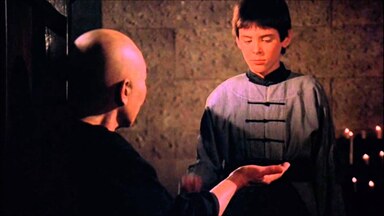 Snatch the pebble from my hand. Snatch the pebble from my hand. I used to teach pilots to fly. I'd always ask my student pilots the same question, "Do you want to be a pilot, or do you want to fly?" Most didn't get the question, so I rephrased it in the words of the immortal fighter pilot Colonel John Boyd, "Do you want to do something, or be someone?" This is a lesson, a concept so profound, I dearly wish I had learned in my youth. If you're looking for a label, a status symbol, you will never be truly fulfilled as a human being. If, on the other hand, you are seeking a path to self-fulfillment and personal excellence, you will be a happier person. The titles and labels will occur as a result of that journey, not as a goal. I would tell my students that if they were chasing a label, I couldn't help them. If they were choosing a path that would lead to a love of flying, then I could help them along on their path. Then I would flick my fu-man-chu and ask them to snatch a pebble from my hands (if you got that, then you are old as dirt, too.) The title "pilot" was just a milestone along the road, not the destination itself. So are the labels "author" or "musician" or "photographer" and why doctors use the term "practicing medicine." Attaining a title or label always leads to the perplexing personal question, "Now what?" 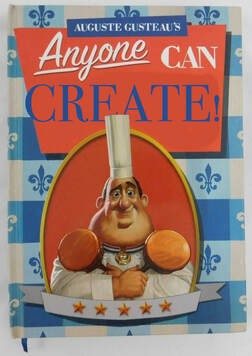 Back in my Underground Book Reviews days, I once attended a writers' conference hosted by a major university, where I encountered a memorable individual. He was not a only a writer, but also an English professor. It was his opinion there were way too many writers, most of which had no talent and wrote awful books. He felt there should be a way to keep these independent authors from publishing, because they made it more difficult for readers to find the good authors like him (of course). He was dead serious. It never occurred to him that he may be among the ranks of those great unwashed hordes of terrible independent authors. They shouldn't have an opportunity to publish, but he should. The professor had a point, albeit a twisted one. Someone once said talent is cheap. My life experience teaches me this is true. My life experience also teaches me information is cheaper. If something is made or distributed with a click of a mouse, its cheap. The Information Age has dramatically lowered barriers to entry for creators and artists of all genres. In other words, its made content creation cheap. Anyone with a internet connection and a word processor can be a writer. Anyone with a smart phone and a Tik Tok account can be an influencer (whatever the hell that is). Anyone can create. The barbarians have crashed the gate. That means there is a lot of crap out there. Go browse Youtube and Tik Tok and you'll find crap content. You'll also find much more mediocre content. You might even find a few gems, but you have to wade through the slush pile first. This is simply a fact of life in the 21st century. We are saturated by information every minute, every hour, every day. There are no more real gatekeepers for information. If you're a writer or a musician you know this better than anyone. Writers learned this first when Amazon and Kindle came along. Now with the advent of streaming services like Spotify, musicians have followed writers down this over-saturation path. Long gone are the days when getting published meant something. There are still traditional publishers, but even their books are harder to sift through. There are far more books in print and digital than ever before. The title "author" is cheapened by being so common, so accessible. To this I say, so what? Because it is the act of creation that is truly precious. The experience is priceless to the writer themselves. It goes back to the question: Do you want to do something, or be something? The act of creation can be a reward unto itself. In fact, it MUST be the reward unto itself if one wants to endure and improve. No one reads books to get famous, we read for pleasure and information. Writing can be the same. 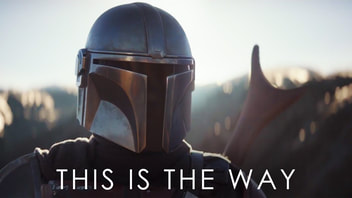 I take my inspiration for being a writer from several musicians I know in local bands. They practice regularly to continually improve their art, and are always striving to be better. They play in the same local club circuit to the same enthusiastic crowds. They have day jobs to pay the bills. They play for the love of playing, for the experience of playing. Stardom isn't their goal. They are musicians, not rock stars. Create. Improve. Repeat. This is the way. This is the bedrock from which everything else springs, whether that results in commercial success, or simply your next gig or independently published short story compilation. Labels are cheap. Information is cheap. Talent is cheap. The journey is priceless. Do something. Embrace that something with all your heart, passion and energy. Immerse yourself in your art, and you shall transform and become something. #writing #creation #publishing #kindle #amazon #contentcreation #writersjourney #content #selfimprovement #anyonecancreate Please join me on my journey. If you enjoyed this blog, please like the post and leave a comment or if you're feeling brave, share it on social media. This platform is my entire advertising budget and is how I share the word on my books. Also visit my Facebook, my author page and check out my fiction books here book here.
0 Comments
God said to them, “Be fruitful and multiply; fill the earth and subdue it... - Genesis 1:28
THE FERMI PARADOX
Why haven't we detected an alien civilization yet? That's a big question. Scientist put forward two hypothesis: 1) The universe is stupidly enormous and we've only been seriously looking for less than a human lifespan or...2) Something wipes alien species out before they really get started. Both answers might be right, but let's talk about the second possibility, otherwise known as "The Great Filter".
The Great Filter theory, otherwise known as the Fermi Paradox, states that alien civilizations are snuffed out before they can attain significant spacefaring/galactic empire-level evolutionary levels. Otherwise, we would have detected them by now. They could be wiped out by natural events (celestial impacts, disease, volcanos, gamma ray burst, supernova, etc) or wipe themselves out (war, malicious artificial intelligence, etc). What makes this theory interesting, is that humanity might have already survived several natural Great Filter events. We also may be approaching an unexpected, and self-inflicted, Great Filter event.
THE CYCLIC CATACLYSM THEORY OF HUMAN EVOLUTION
Up until recently, mainstream historians have held the "Gradualists Theory": They believe human history is gradual, continuous evolutionary line from the Stone Age to the Space Age. This theory begs a question: If humanity reached its current evolutionary form over 300,000 years ago, but only appeared to come out of the stone age a mere 6000 years ago, what were we doing with ourselves in all the time before? No one figured out agriculture, the wheel, and metallurgy in all that time? Humans just sat on our stone age asses for over a quarter of a million years? This flies in the face of what we know about inherit human nature. Now, there is a new theory gaining traction based on emerging evidence, the Cataclysmic Theory of human civilization.
A new group of scientist, anthropologist and historians believes human history isn't a continuous line, but a series of cataclysms and restart cycles dating back tens of thousands of years. Global-level natural disasters, far more destructive than anything we've encountered in historical times, repeatedly drive our species to extinction's edge. They also wipe out all the progress we had made to that point, and reset us to a stone-age baseline. We suffer from species-level amnesia. They believe that last great event occurred at the beginning of the Holocene epoch 12,800 years ago when massive comet impacts peppered the planet, wiping out 60% of the earth's megafauna. We survived, but barely. This cyclic Cataclysm Theory of human history fits nicely in the Fermi Paradox. Humanity has essentially survived several natural Great Filter events. Now, we have advanced far enough technologically we threaten ourselves with several possible Great Filter events. Many people would agree the threat of nuclear annihilation would probably be the most feasible way humanity could wipe itself out, but there are other threats, too. Some believe man-made climate change will soon destroy us, or we will be destroyed by our own artificial intelligence. Maybe, just maybe, it is something else ushering us to our doom.
CIVILIZATION'S TWO PRIMARY RULES
I personally believe a civilization must do two things in order to survive: 1) Have children. 2) Instruct those children in the arts and sciences that made their civilization successful in the first place. I call these Civilization's Primary Rules. Break even one of these two rules and your civilization will eventually collapse. All of earth's civilizations are now breaking the first rule, and Western civilization is breaking both. Let's save the second rule for another blog post, and just focus on the first rule because it is an objective standard.
We are in the midst of a global population collapse, and it's not good. In fact, I believe we might be entering a Great Filter moment. Globally, people are having fewer children. Dropping fertility rates are happening for many reasons, which are hotly debated, but I'm going to break them down into two categories: choice and environment.
CHOICE
First, people are choosing to have fewer children or not to have any children at all. This is a global phenomenon, more pronounced in developed countries but rapidly catching up in developing countries.
In Japan, for example, the factors "include the declining marriage rate, an increase in the average age of those getting married, economic burden, childcare burden, later child-bearing, and infertility." In sub-Saharan Africa, where birthrates are still high, they are dropping rapidly. "First, an increase in the proportion of the population living in cities. City dwellers have fewer children because they live in smaller housing units, they have more of a consumer lifestyle and are less able to rely on the community than in the country. Then there is the development of women’s employment. They increasingly work in places where they cannot bring their children along with them, unlike in the field, for example. There is also improved education for girls. Educated girls have a better understanding of their rights in the area of contraception and of what that can mean for their financial and social independence. Lastly, there is the reduction in the age difference between spouses. This entails a greater sharing of modern values and therefore less of a desire to have many children." There are other factors, too. Easier access to contraception and abortion have played a role. Child-bearing age women are pursuing careers instead of family. Men are choosing not to marry as if offers fewer and fewer advantages, and higher risks to them when compared to previous generations.
Not only is choice a factor, but now there is a growing awareness that environment may play a significant role in declining male fertility. The modern world is robbing us of our ability to reproduce.
ENVIRONMENT
Recent research by a team led by Shanna H. Swan, Ph.D published a study proving a 59% drop in male sperm production since 1973. There has been a corresponding increase in miscarriage rates among women. Humans globally are becoming less able to have children at a rate of 1% per year. In Dr. Swan's (See video below) words, " Everything seems to be progressing at the same rate of deterioration for human reproductive function." Why?
This drop has happened in two generations. Dr. Swan divides environmental factors into two factors: lifestyle and chemicals. In terms of lifestyle, such factors such as obesity, smoking, binge drinking, and stress can all have a significant impact on male and female fertility. In terms of chemicals, there has been a significant increase in chemicals that influence human hormones. These human hormone "hacking" chemicals are called endocrine disrupting chemicals (EDCs). These EDCs impact the formation of testosterone and male development in utero. Phthalates, a class of WIDELY used plastics, can cause something called Phthalate Syndrome (PS), stunting male development in utero. PS has been found in humans. Women with high phthalates during pregnancy have had measurable higher rates of boys with underdeveloped genitals, which opens them up to a host of reproductive health issues and low sperm counts. Where do you find EDS? Phthalates alone are in plastics, clothing, vinyl, cosmetics, creams, scented laundry soaps, pesticides, and in any foods that are stored or pass through phthalate-containing material. Phthalates are only one class of EDCs, there are many others that permeate our environment and have varying effects on the human reproductive system. The bottom line: The ABILITY for humans to have children has dropped by 1% a year since the 1970s. This, coupled with CHOICE, has created a significantly declining birthrate for our species. Some of you might be asking, "So what?"
FEWER PEOPLE, SO WHAT?
Dr. Jordan Peterson, in the interview below, makes a point that mainstream science has been sounding the alarm of over-population since the 1960s. These dire predictions never came to pass. As early as the late 1990s, several notable voices, such as Pat Buchanan, have sounded the opposite call - a population collapse was on the way, led by the affluent western democracies.
Its possible global human population may never top 9 billion. You and I may be living through the era with the highest human population that may ever be. Imagine you're in an airplane, that has been skyrocketing at full power ever higher and higher. Then, the pilot cuts the engine. You don't immediately fall. In fact, you keep climbing, albeit at a slower and slower rate, until you hit your apogee and then begin the descent. Human population is now in that upward coast phase. Our momentum is still carrying us up, but only for a little while longer. The real issue for humanity is the engine may not restart, or at least in time to avoid disaster.
What are the implications of a global population collapse? Carefully read these excerpts below and ask yourself if any of it sounds familiar.
"A rapidly aging population means there are fewer working-age people in the economy. This leads to a supply shortage of qualified workers, making it more difficult for businesses to fill in-demand roles. An economy that cannot fill in-demand occupations faces adverse consequences, including declining productivity, higher labor costs, delayed business expansion, and reduced international competitiveness. In some instances, a supply shortage may push up wages, thereby causing wage inflation and creating a vicious cycle of price/wage spiral." - Investopedia, 2021 "Today, there are more than 46 million older adults age 65 and older living in the U.S.; by 2050, that number is expected to grow to almost 90 million." - Rural Health Information Hub, 2015 "The social and economic costs of such an abrupt change in such a historically short time are difficult to evaluate: its impact on the pension and health system, family structures, labor productivity, etc. is enormous. Japan, followed by many other countries, is heading towards a path never experienced in human history, and that appears to be full of unknowns." - Institute for Family Studies, 2017. Does this sound like the labor and supply chain disruptions we're experiencing right now in the wake of the COVID pandemic? It does. COVID, and the global lockdowns that followed, gave us a sneak peak of what we are about to endure permanently in the coming people-shortage. 1. Labor shortage - Too few working-age people. 2. Declining productivity. People in lock-down is the equivalent to large numbers of older people retiring out of workforce. 3. Supply shortages. 4. Wages and prices being pushed up (inflation). (If you expect remote working and robots to solve these problems, good luck. However, we'll save that discussion for another blog.) Too few young, productive workers and too many older people to take care of; the Great Lockdowns of 2020-2021 gave the world a sneak peek of what is waiting for us in the coming decades. Yet, this isn't the truly concerning part of this story. You know what else didn't happen during the Great COVID lockdown? There was no expected baby boom. Millions of young couples were shut up together for months on end, and yet the baby boom never materialized.
FEWER PEOPLE MEAN FEWER PEOPLE.
Fewer people mean few babies. Fewer babies mean fewer adults, which then leads to fewer babies. Simply put, this is a trend not easily reversed.
"Low birth rates and below replacement level fertility rates in the U.S. are probably here to stay for the foreseeable future." - Brookings Institute, 2021. "The U.S. fertility rate hit a record low in 2020 — just as it did in 2019, and 2018. Although the COVID-19 pandemic seems to have accelerated this decline, the drop has been underway for years. The total fertility rate — the average number of children a woman is expected to have over her lifetime — now sits at 1.64 children per woman in the U.S. Not only is this the lowest rate recorded since the government began tracking these stats in the 1930s, but it’s well below the so-called “replacement-level fertility” of about 2.1." - fivethirtyeight.com, 2021 "The problem with low fertility is that it reduces population size not at all ages but only among the young. Low fertility produces an age structure that creates a momentum for future population decline, a situation that must be stopped at some point if the population is to be demographically sustainable. Also, populations with low fertility can fall in size at an extremely rapid rate. The longer low fertility is maintained, the harder it becomes to reverse population decline. " - PBR.org, 2001. Some of the cited articles say population decline may not be a bad thing, and we can always chose to reverse the decline at some point. NONE of these articles refer to the growing research that, due to the influence of EDCs, may not be able to reverse the decline, at least not in time. Dr. Swan states EDC-driven fertility damage can be reversed in two generations. In two generations from now humanity will be in real population decline, and significantly older. This assumes no major cataclysm will significantly thin our numbers, like a real pandemic or another major world war, or a celestial impact. Mathematically, we are approaching a window, and that window is closing.
WHERE DOES THIS END?
Is humanity approaching a new chapter in the boom-bust cycle presented in the Cataclysm Theory? Could this be more than just the next iteration in the cycle, but our species actual Great Filter comeuppance? This time, are we heading for a population cataclysm, a "Children of Men" collapse driven both by choice and environment? I don't know, but I would say such a future is highly difficult to imagine given that our planet has almost 8 billion people and still climbing. I would also say, however, those that foresaw and warned about the present population declines were once mocked, and they were right.
If this is the Great Filter moment for homo sapiens, it's not too late to reverse course. Governments are slowly starting to recognize the problem, and some are shifting policy gears. Across the globe, nations are starting to look at ways to encourage child bearing, where before they actively discouraged it. Where will these efforts lead? It's too early to tell. Maybe this is our Great Filter moment, one perhaps other galactic civilizations didn't survive. They didn't blow themselves up, or were wiped out by a comet impact. Perhaps they just became too steeped in their own lives, and forgot civilization's two primary rules. They saw procreation as something to be feared and avoided, like a disease. Their ranks thinned until the light of their once thriving civilization just faded away.
The opinions expressed here are solely my own and do not represent any organization or group. If you have been triggered, you may vent and rage below in the comments section.
If you enjoyed this blog, please like the post and leave a comment or if you're feeling brave, share it on social media. This platform is my entire advertising budget and is how I share the word on my books. Also visit my Facebook, my author page and check out my fiction books here book here. A reader of my latest novel, “The Bastard Gods” made a comment about a word I used. The reader said the word “savage” was offensive. This was news to me, so I decided to look it up on Dictionary.com. Here’s what I found: Savage [ sav-ij ] 1. fierce, ferocious, or cruel; untamed: savage beasts. 2. Offensive. (in historical use) relating to or being a preliterate people or society regarded as uncivilized or primitive: savage tribes. 3. enraged or furiously angry, as a person. 4. unpolished; rude: savage manners. 5. wild or rugged, as country or scenery: savage wilderness. 6. Archaic. uncultivated; growing wild. There it is, definition number 2. According to Dictionary.com the word savage has officially been declared, deemed, labeled, and designated as offensive. So what does that mean? Offensive [ uh-fen-siv or, for 4, 5, aw-fen-, of-en- ] adjective 1. causing resentful displeasure; highly irritating, angering, or annoying: offensive television commercials. 2. unpleasant or disagreeable to the sense: an offensive odor. 3. repugnant to the moral sense, good taste, or the like; insulting: an offensive remark; an offensive joke. 4. pertaining to offense or attack: the offensive movements of their troops. noun 1. the position or attitude of aggression or attack: to take the offensive. 2. an aggressive movement or attack: a carefully planned…offensive. I suppose that means “savage,” in the context of use in my novel, is repugnant in a moral sense. Well, good. It’s supposed to be. The characters who utter the word use it in its full repugnant glory. These fictional characters negatively describe cultures and peoples they believe are primitive and beneath them. They are complex, flawed and sometime very nasty characters, and the word is appropriately used for the situation. Pray tell, what word would they use if not “savage”? There was a time when the dictionary didn’t pass judgement on words, it merely explained them. When did Dictionary.com take it upon themselves to start making value judgements on words? In fact, that’s exactly what this article from Dictionary.com does. Here’s an excerpt from the article’s opening, “…It’s very important to be mindful of words that were originally or historically used in very offensive ways. Here’s a list of words with hurtful histories that may have you thinking twice about your word choice.” What the author of this article fails to mention is most people have no clue what the ancient origins of these words are, only their modern (and benign) meaning. They weren’t considered offensive until someone went out of their way to make them offensive. Time is considered the Great Healer, and time has healed these words and phrases, making them palatable and useful. They now have different contexts which enhance and enrich the literary landscape. Their dark origins were lost and now irrelevant. What Dictionary.com has done has intentionally poisoned them. ANY word could be considered offensive, it merely takes the right situation, context, perception, and someone to complain loud enough. If you dig deep enough into the etymology of any word, you’re likely to find negative context in its past use or origin. How does the process work? Do the Offended take their petition before some kind of Word Tribunal, where the anxious and entitled wring their hands and tremble at each utterance of an abominable word? What power they must feel when they strike down each word and phrase! There is no power greater in the modern world than that of the Offended. In the past, if one did not agree with a word, a thought or a book, one merely didn’t read it. Now it must be labeled and targeted for deletion. “But they aren’t banning the word, they are just labeling it as offensive,” you say. You’re right, they aren’t banning it. They are cancelling it, which is worse. If an organization like Dictionary.com publicly stated they were banning a word, there would be an outcry. No, they merely stained it. That’s all it takes these days. Every writer who submits a book to an editor will have their word choices questioned at best, stricken at worst. No publisher wants to get labelled as racist or “-phobic.” They don’t want hordes of Twitter denizens calling for boycotts or even worse. Platforms like Amazon will de-platform. It’s not worth it. Just go along and get along, and everything will be alright. Editors will push back and writers will self-censor. We’ve seen it before. It’s brilliant, really. If you try to ban a book, legions of activists from the right and left will descend upon you. No one bats an eyelash these days when you ban a word. It’s actually better than book banning. Words matter because words are the basic building blocks of thoughts. Words are the computer code of the sentient mind. Delete words, delete thoughts. One still has freedom of speech, but less words with which to do it. Oh, you can still theoretically use offensive words, but you will suffer the consequences. What kind of consequences? Cancellation. We’ll cancel your job, we’ll cancel your book, cancel your show, cancel your reputation. We’ll dox you, de-platform you, marginalize you and perhaps threaten violence. We’ll do whatever it takes to get you to shut up. Don’t use the words if you know what’s good for you. That’s not political or intellectual discourse, that’s a threat. Actually, no, that’s not entirely accurate. It’s only a threat until it is acted upon, then it becomes an attack. Don’t believe me? Go back and look at the definition of offensive, but this time as a noun: 1. the position or attitude of aggression or attack: to take the offensive. 2. an aggressive movement or attack: a carefully planned…offensive. Labeling, cancelling, deleting, banning, doxing, marginalizing…these are modes of intellectual warfare and on my list of offensive words. When words and phrases, and those who write or utter them, are destroyed under the guise of “offense,” it is a war on thought itself. Such behavior breaks the spirit of the 1st Amendment, if not always the letter. Labeling, cancelling, deleting, banning, doxing, marginalizing…these are repugnant things in the moral sense, abhorrent to good taste; insulting. Offensive. They are savage, as are those who practice them. #savage #Labeling #cancel #cancelling #cancelculture #deleting #banning #ban #doxing #dox #marginalizing #marginalize #bookburning #davechappelle #censorship #censor #snowflake #NPC #politicallycorrect 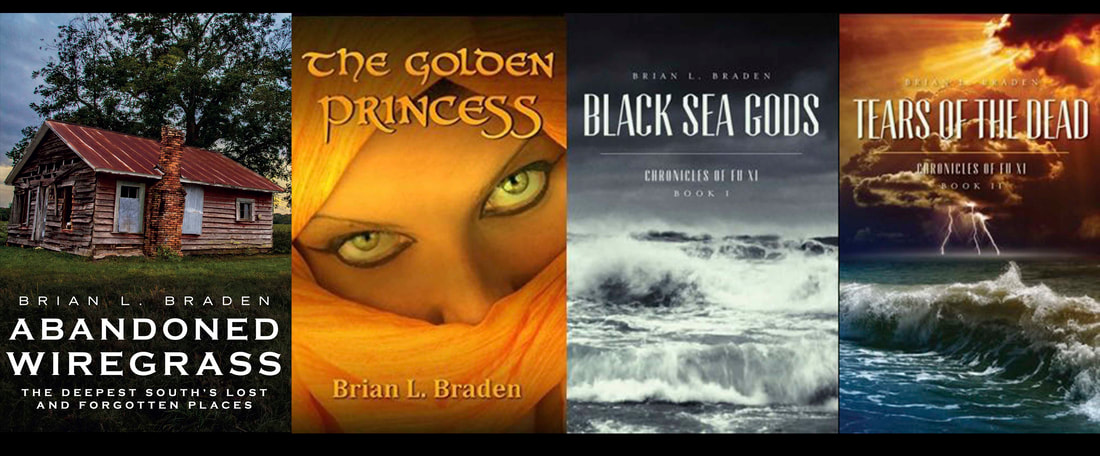 *** Disclaimer: All opinions expressed here are strictly my own personal views. If you enjoyed this blog, please like the post and leave a comment or if you're feeling brave, share it on social media. This platform is my entire advertising budget and is how I share the word on my books. Also visit my Facebook, my author page and check out my photography book from America Through Time, "Abandoned Wiregrass: The Deepest South's Lost and Forgotten Places." I turn 54 today and the Universe is trying to kill me. Let me explain.
As I celebrate another trip around the sun, the sun commemorated the occasion by unleashing a major solar storm aimed directly at our planet. While I’ll try not to take this personally, it does get me thinking. The solar flare carries the energy of billions of nuclear bombs. We might have some internet and GPS interruptions, but Earth will shrug it off. Life will go on. You see, our little planet has an a magnetic field that punches way above its weight class. The sun’s highly charged onslaught will go right around our planet. That incredible magnetic field will even protect the astronauts on the International Space Station. If our planet orbited just a little closer to the sun, we’d be fried. If we didn’t have such an exceedingly powerful (and unusual) magnetic field, we’d be fried. If we orbited only a little farther away, we’d be frozen. Scientist call this place Earth occupies “The Goldilocks Zone” because its not too hot and not too cold. In fact, it’s just right. It’s impossibly right. Our planet dances on the edge of impossibility. Go up about fifty miles and the atmosphere is too thin to support life. Beyond that, there is nothing but emptiness. Dig down about 18 miles and you enter a searing hot ocean of molten rock. To put it in perspective, our solar system is approximately 93 billion miles in diameter. Of that, a band less than 70 miles supports life. 70 miles out of 93 billion miles! Oh, it gets better. If our planet didn’t have a molten iron core, we wouldn’t be here. If our planet wasn’t blessed with an unusual amount of water, we wouldn’t be here. If an astroid hadn’t knocked off all those pesky dinosaurs, we wouldn’t be here. Our telescopes have discovered worlds circling other stars as far away as 13,000 light years. In all that searching they’ve discovered no signs of life, intelligent or otherwise. It doesn’t mean there isn’t life, its just that we haven’t found it. The Universe is about 98 billion light years across and overwhelmingly inhospitable, (mostly due its nature of being a bunch of nothing). Life needs stuff to survive. In the places where the Universe actually has stuff, that stuff hates life. A sliver of biosphere 70 miles thick supports the only life for at least 13,000 light years. Despite overwhelming odds, Earth teems with life, (some of it might even be intelligent.) This planet is about 4 billion years old, and, amazingly enough, has hosted life for most of that time. The Universe has tried to knock us off again and again. Yet, here we are. This brings me to today. I turned 54 today. Mathematically, I shouldn’t be here and neither should you. In the known universe, there isn’t anything like us, and like Earth. We are living, breathing miracles, little slivers of self-aware time-space. Our little planet dances on the edge of impossibility, therefore so do we. Statistically, we punch way above our weight. That thought fills me with gratitude and awe. I’m thankful God permitted me a brief time here to witness and participate in Creation. I hope to participate some more before the Universe finally knocks me off. I guess it’s time for a glass of wine, and prepare for another lap around the sun. *** If you enjoyed this blog, please like the post and leave a comment or if you're feeling brave, share it on social media. This platform is my entire advertising budget and is how I share the word on my books. Also visit my Facebook, my author page and check out my photography book from America Through Time, "Abandoned Wiregrass: The Deepest South's Lost and Forgotten Places." #birthday #joy #faith #hope #god #gettingold 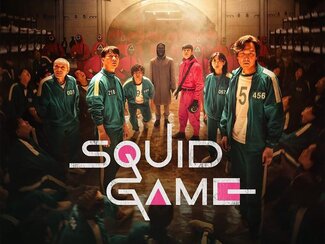 The Squid Game on Netflix. The Squid Game on Netflix. I had great ambitions for this installment of The Illusion Exotic. Now its Sunday afternoon and the shadows are growing long. I’ve started about four different blog posts for tomorrow, and abandoned them all. I’ve bounced back and forth between this blog and my next manuscript and I can’t seem to get a good foothold on either. Mostly what I did this weekend was nothing. Doing nothing makes me feel unproductive. Maybe my brain needed a rest, because mostly what I did this weekend was binge-watch Netflix. Mind you, I’m not a binge watcher. In fact, I don’t watch a lot of television. I’d rather read, write or edit photos. This weekend, I just didn’t have the energy. After tooling in the yard, I sat down and turned on Netflix and started watching a show someone at work recommended. With a few exceptions, I didn’t quit watching until I finished the entire season. It had me completely enthralled. The name of the show was The Squid Game. The South Korean series, written and directed by Hwang Dong-hyuk, is at times brutal and beautiful. Brilliantly written and acted, it caught me by surprise. It tells the story of a down and out gambling addict who failed himself and everyone in his life. Desperate, he accepts a too-good-to-be-true offer to participate in competition for a chance to win the South Korean equivalent of $40 million. Drugged and whisked away to an isolated island, he finds himself with 455 other contestants, all as equally desperate. Over the course of nine episodes, they are pitted against one another in a series of childhood games. The twist is that the losers of each round are killed. There are a lot of messages in The Squid Game, but it never comes off as preachy. It’s not Woke. I think it’s a social commentary on the dehumanizing effects of debt and pursuit of money for its own sake, and how this world can tear us down. It’s also a commentary on how dehumanizing modern society can be. The use of masks in the story kept reminding me of the emergence and effects of masks since 2019. It also carries a harsh message about the emptiness of Christianity that doesn’t practice what it preaches. Yet, in one powerful scene a character demonstrates the essence of Christ’s sacrifice. For my fellow writers, I’d recommend watching this as a study of character development and plot tension. Hwang Dong-hyuk’s writing and character development is first-class. The actors carry the story wonderfully. It’s dubbed, but dubbed well. I usually prefer subtitles, because something is always lost when a movie is dubbed. However, in this case, the dubbing worked well. A nod should go to the voice actors and editors who made this work well in English. I wouldn’t recommend this series to anyone under 17. There is brief nudity and some sexual content, but mostly it’s violent, but necessarily so. The violence, however, wasn’t as terrifying as the tension. The tension is simply brilliant. See? A weekend on the couch paid off. See you Friday. #thesquidgame #reviews #netflix *** If you enjoyed this blog, please like the post and leave a comment or if you're feeling brave, share it on social media. This platform is my entire advertising budget and is how I share the word on my books. Also visit my Facebook, my author page and check out my photography book from America Through Time, "Abandoned Wiregrass: The Deepest South's Lost and Forgotten Places."  "Wiregrass Rush Hour." 2020 Brian Braden Photography "Wiregrass Rush Hour." 2020 Brian Braden Photography I was going to write a blog this morning either about the function of faith in civilization or how left-lane drivers really irritate me. Guess which topic won? (Sung to the tune of “Life in the Fast Lane” by the Eagles) He was a slow-driving man He was brutally oblivious, and she was terminally texting, She held them up, and he braked for no reason In the heart of the slow, slow traffic. They had one thing in common. They didn’t know how to use a turn signal "Slower, Slower the lights are turnin' red!” Life in the left lane, surely make you lose your mind. Bad lyrics and kidding aside, left-lane drivers drive me nuts. I suspect I’m not alone . There are many more eloquent than I who have commented on those who park in the left lane and don’t move over. I try not to let them annoy me anymore, because nothing is going to change the fact they will always be with us. You see, left-lane driving is proof of the existence of original sin. (stay with me here) When Jesus said “The poor will always be with you” I think he also meant a lot of things people do will always be with us. You see, in most cases we humans are taught what’s right. Logically, we know what is good and bad. Wash your hands before you eat. Don’t mix beer and wine. Watch what you eat. Murder is bad. Never get involved in a land war in Asia. Don’t hang out in the left lane. Yet, we do it all anyway. When one hangs out in the left lane, and people start resorting to passing on the right it’s a clue you’re doing something wrong. But I'm not not really just talking about left-lane driving, its about following rules. When I say "follow rules", I’m not referring to high-minded concepts like civil disobedience and rebelling against tyranny. I’m talking about following speed limits, not littering, flushing the toilet and putting the twisty tie back on the bread bag. I'm referring to responsible civic-mindedness. The simple stuff and the blatantly obvious. Most people see the wisdom in following traffic rules, or most civic rules. However, some people think rules are for other people. This attitude is neither malicious nor uncommon. It’s just being human. What isn’t discussed much about this phenomenon is that people who think this way often think consequences are for other people, too. This is at the heart of what I’m trying to get across. A few years back I took my three young children to the park. A ring of signs clearly stated pets were not allowed in the playground areas, and 99% of the greater park was open to pets including two dedicated dog parks. While my children played, a woman strolled right into the playground area with a Great Dane on a leash, sat on a bench, and stuck her face in her phone. The horse-dog then proceeded to urinate and defecate where the children played. She thought the rules didn’t apply to her, nor did the consequences. The kids stepping the animal waste paid the price, not her. I’m not judging her, because I’ve been her before in regards to other infractions. I think we all have, to some degree or another. We’ve all bent, ignored, or consciously blown-off common sense rules put in place to protect others and ourselves. Sometimes the consequences may be something smelly and squishy between our toes, and sometimes it’s far worse. A few weeks ago I witnessed an accident where a young woman decided to pass on a two-lane blacktop in a no-passing zone. She was approaching a limited-sight hilltop at full highway speeds and decided to pass a the vehicle in front of her. And pass she did, and immediately collided head-on with an automobile pulling out onto the highway. The no passing zone was clearly marked. Common sense says passing when approaching a hilltop is a bad idea. Yet, she did it anyway, and horror resulted. Why do we do it? We want rules. We elect politicians to make laws. We hire bureaucrats to regulate us. We want our police to enforce them. Yet, as individuals we often brush rules aside, sometimes cavalierly, like it’s cool. When we step in dog crap in the playground, or get stuck behind the guy driving five miles an hour under the speed limit in the left lane, we shake our fists and wonder why people can’t follow the rules. Then there are those times when tragedy strikes because someone decided the rules didn’t apply to them. All of us take a bite of Eve’s apple from time to time and end up hanging out in the left lane. It’s in our DNA. It’s a flaw in our programming at the deepest level. This inherent flaw, dare I say sin, of willful disobedience is fundamental human nature. No number of laws, rules or regulations or screaming at the car in front of you will change it. So stop screaming at the guy in the left lane, or you’ll surely end up losing your mind. You're not going to change him. Maybe we need to work harder on changing our own behavior. In life, the only driver you can control is yourself. #traffic #essay #orginalsin #sin #culture #society #issue #faith #religion *** If you enjoyed this blog, please like the post and leave a comment or if you're feeling brave, share it on social media. This platform is my entire advertising budget and is how I share the word on my books. Also visit my Facebook, my author page and check out my photography book from America Through Time, "Abandoned Wiregrass: The Deepest South's Lost and Forgotten Places." |
Archives
July 2023
Categories
All
|
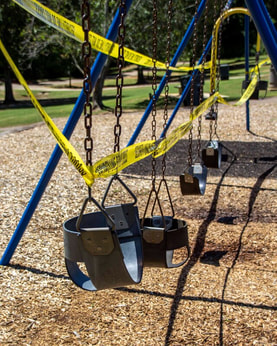
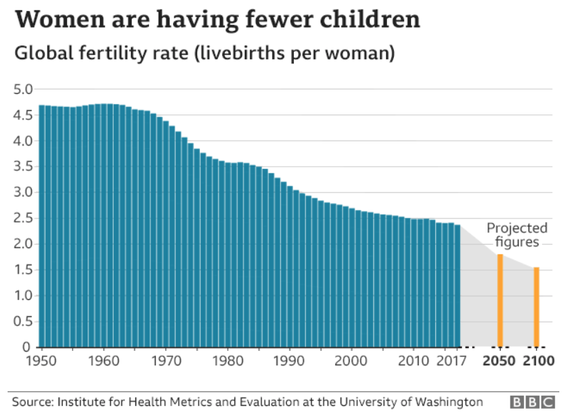
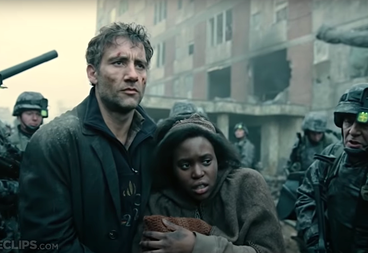
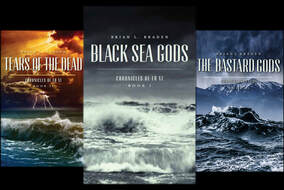
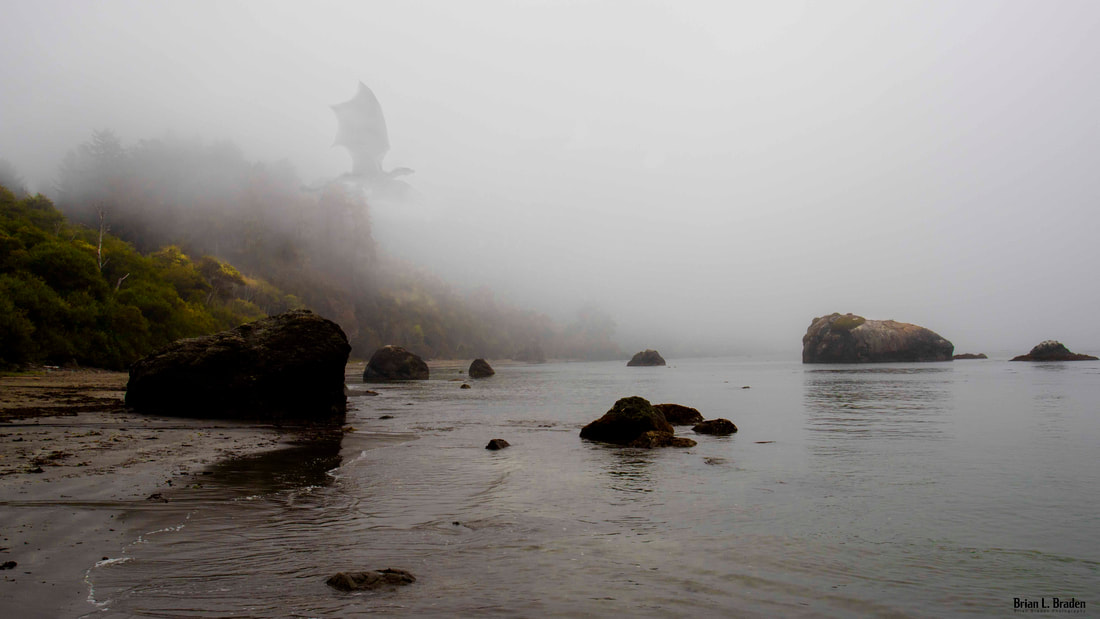

 RSS Feed
RSS Feed